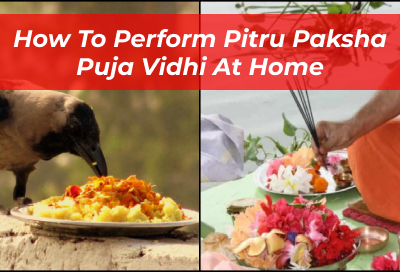
Shraadh is one of the most important and ancient annual rituals. Pitru Paksha puja is a rite festival performed by Hindu families for their ancestors. The Shraadh period begins from the Purnima, the full moon day of Bhadrapada, to Amavasya, also well known as a Pitru. It is believed that during the time of Shraadh or Pitru Paksha, which falls on 10 September and ends on 25 September this year, 2022, the family's eldest member performs a puja and donates water and food to priests so that the spirits of their ancestors are satiated.
In turn, the spirits bless the living members with long life, wealth, success, and happiness. The main reason behind this ritual being performed is for the salvation of the soul of ancestors and to showcase honour, respect, and devotion towards ancestors. According to the Garuda Puran and Markandeya Purana, the key scriptures for many after-death rituals, the son must perform this Puja Vidhi for the father's salvation, and ancestors will bestow wealth, Moksha, health, and long life. There are many tales attached to Shraadh; one is related to Lord Varah, 3rd incarnation of Lord Vishnu introduced Shraadh to the earth. Lord Varah had created three pindas from his molar tooth and placed them on kusha- grass, these 3 Pindas resemble the father, grandfather, and great grandfather.
Importance Of Pitrupaksha
According to traditional beliefs, the family's unhappy souls generally return to earth to visit their loved ones until they attain Moksha. Therefore, to assure that the deceased member's soul has attained Moksha, the Pind Dann ritual is performed by the family members in which they satisfy the soul's thirst and hunger. It is an act that calms the soul that no longer exists in its physical form. All these rituals and prayers are done to free the soul and assist them in being released from the life, death, and birth cycle.
Pitru Paksha Rules
Depending on region to region, different individuals follow different rules. But the universal rule is not to begin any new activity during this period, as these days are meant for the departed souls. No marriages occur during these days, and no new things/items are bought until this period is over. It is not considered auspicious even to get a haircut during the period of Pitru Paksha. It is suggested not to eat non-vegetarian food during this time. Many families do not even include garlic and onion in their food. All these mistakes should be avoided during pitru paksha to make the ancestor's soul happy and satisfied.
Pitrupaksha/Shraadh Vidhi
• During Shraddh rituals, the eldest son or family member takes a bath in the holy water, gets dressed up with new clothes, and wears a ring made of Kush grass (a symbol used to invoke souls).
• A chowki or low-heightened wooden table is covered with white cloth, and barely or black sesame seeds are spread on it with the photo of an ancestor placed on the same. All this setup is done in the south corner.
• The dressed-up family member invites ancestors for Pind Daan and offers rice balls with goat's milk, sugar, and honey.
• The ritual is further followed by Tarpan, in which flour and water are mixed with black sesame seeds, barely Kush, and all of these are offered to the ancestor's soul.
• Once all the rituals are done, and food is offered, all these foods are served to the poor and needy while seeking ancestor's blessings.
Benefits Of Doing Pitru Paksha Puja
There are many benefits of Shraadh Puja Vidhi - Rituals, a few are mentioned below;
1. The main benefit of Shraadh is the descendant receives blessings from the Pitru Ancestors.
2. This ritual assists in reducing and removing the effect of Pitru Dosha, if any.
3. This Puja assists in improving health and curing severe diseases.
4. After performing this ritual, it is believed that ancestors will bring good fortune to their descendants along with positive energies.
5. This ritual also helps people to progress spiritually.
6. This puja holds special importance to success in a career or business and protection from negative effects.
7. This ritual will help in success, fame, name, long life, strength, happiness, wealth, etc.
The performance of Shraadh by a son during Pitru Paksha is regarded as compulsory by Hindus to ensure that the ancestor's soul goes to heaven. In this context, Garuda Purana scripture says, "there is no emancipation for a man without a son." The scriptures teach that a householder should propitiate ancestors, along with the gods, ghosts, and guests. Markandeya Purana scripture says that if the ancestors are content with the shraddha, they will bestow health, wealth, knowledge, longevity, and ultimately heaven and salvation (Moksha) upon the performer.